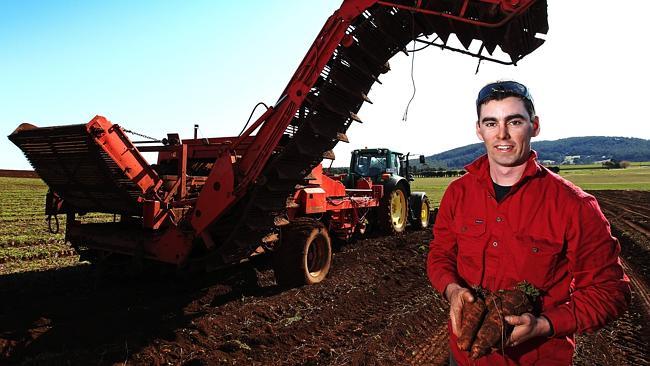Tasmanian vegetable growers ride export boom
THE humble Tasmanian vegetable is finding its way onto more plates overseas.

Tasmania
Don't miss out on the headlines from Tasmania. Followed categories will be added to My News.
TASMANIAN vegetables are finding their way onto more overseas plates.
Vegetable exports from Tasmanian farmers are increasing as the falling value of the Australian dollar makes locally grown products more affordable.
The latest trade figures show the value of Australia’s vegetable exports have jumped by five per cent in the last year.
During the 2014-2015 financial year vegetable exports increased to $270 million, up from $256 million the previous year.
AUSVEG national manager of export development Michael Coote said strong growth in demand from markets in the Middle East and Asia was behind the increases.
“Since 2013-2014 Australian vegetable exports to Singapore and the United Arab Emirates have increased by 29 per cent and 24 per cent respectively,” Mr Coote said.
“The value and range of vegetables has increased in several overseas markets, which is encouraging news to Australian growers, who often grow a variety of commodities.”
Tasmanian vegetable company Harvest Moon is experiencing increased demand, with managing director Neil Armstrong saying the lower value of the Australian dollar had made a significant difference in the competitiveness of locally grown vegetables.
“The drop in the dollar has definitely helped with our exports,” he said.
Mr Armstrong said the competitiveness of Tasmanian vegetable exports would be further improved with the Federal Government’s $203 million expansion of the Freight Equalisation Scheme to include freight bound for export.
Across the country carrot exports had jumped 10 per cent in the past year and cauliflower and broccoli 60 per cent.
“High-quality vegetables are highly sought after with growing middle class populations in Asia,” Mr Coote said.
An AUSVEG program had introduced more than 150 wholesale buyers to Australian growers, with trade missions to Dubai, Hong Kong, Indonesia and Japan. South Korea, Malaysia and even New Zealand had also increased demand.
For more rural stories, pick up a copy of Tasmanian Country, out every Friday


